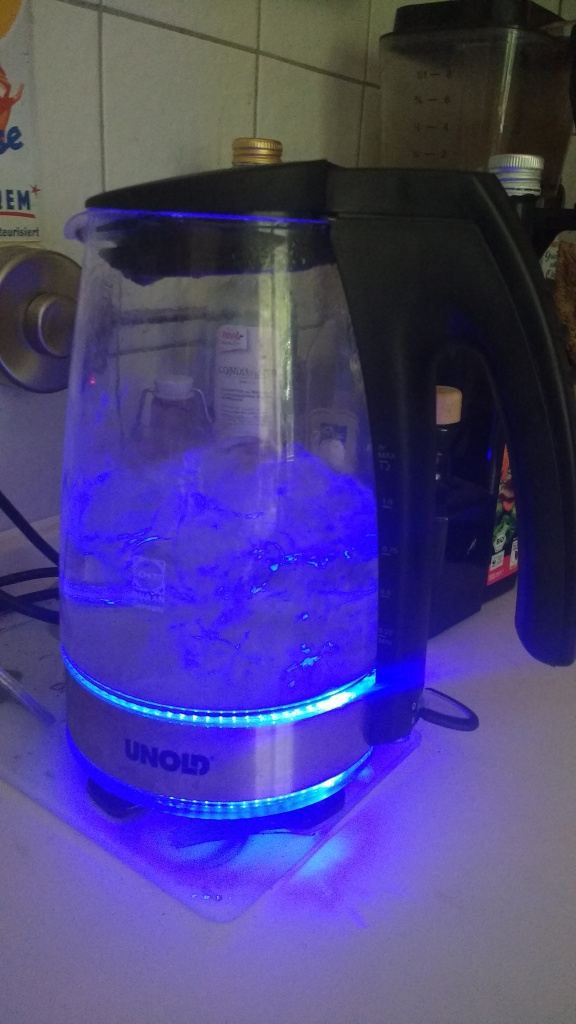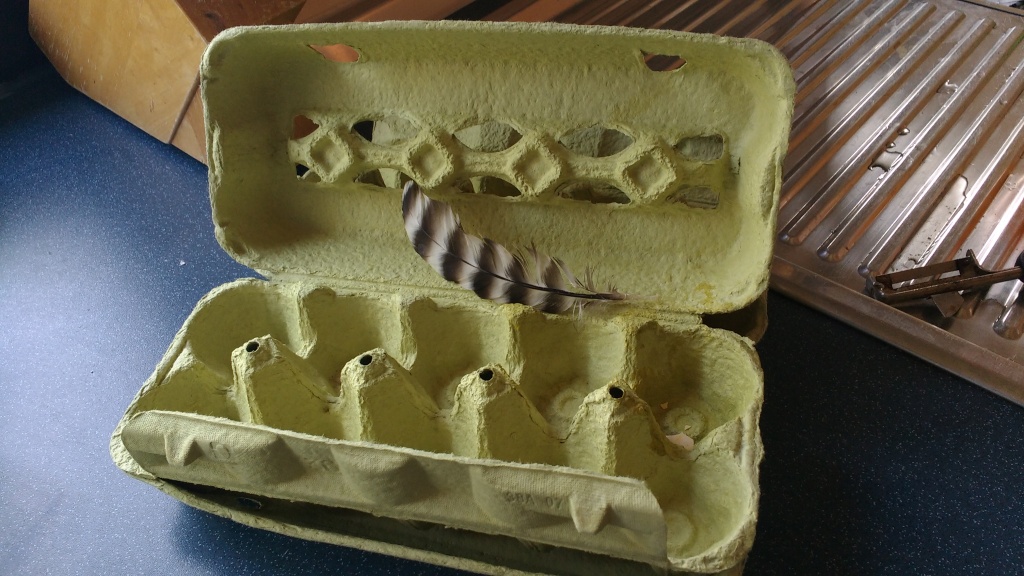This article is supposed to be short – for a change.
And it is supposed to propagate 3 very easy measures to save energy and resources.
It might appear self-evident to many readers, but I experienced so often that these small climate- and nature-protecting actions are not known. What a disaster – at least for me.
- Boil water in the kettle before putting it in the pot for cooking.

Stylish kettles even glow in vivid colors when heating up, sometimes even in a different color for a certain temperature – therefore you also have something to meditate while you wait for your water to heat up.
Instead of using cold water directly, preboiling the water in the kettle saves a lot of energy. Of course this is also valid for induction cooktops which need much less energy for preheating the material and which do not postheat after the cooking process.
2. Put a lid on the pot.

For us environmentalists it is a matter of fact and it can really confuse us if we don’t find the right lid for the pot in use in our holiday apartment. Here as well, and the common sense is with us here: the lid on the pot keeps the warmth in the pot and helps a lot to reduce the heat loss by evaporation.
Therefore: the lid belongs to the pot! If not available, a large wooden board (not too often, wood can’t stand the evaporation many times of course) or a big plate (be cautious, it’ll be hot!) can be a substitute.
Unfortunately some – even pretty – lids are not heat-resistant, so they are going to be as hot as the content. This is definitely worth checking and the best helpers in this situation are colorful self-made potholders.
3. Egg packaging can be refilled or handed to good (refilling, thankful) hands

You had an omelette or eggs for an extensive Sunday morning breakfast and all of the sudden there is another empty box of eggs. Jump on it or tear it into small pieces and throw it into the cardboard waste? Yes, indeed, that’s already the right waste box, but it works out even better with recycling:
The best is to collect them and hand them over to refilling stations. The best possibility are farmers on your local weekly market who are happy they don’t need to buy the packaging themselves anymore. Or other very good solutions are organic or local stores where you can choose and fill up your eggs yourself. Or a CSA, community-supported agriculture, with chicken – maybe even the one you’re a member of.
Through the direct recycling the resource wood is economized. Even if the cardboard goes to the right recycling bin, they use an energy- and water-demanding process to be at your service as an egg packaging again or to be walked out of the store as a paper bag. A directly recycled egg packaging doesn’t demand any energy, water or resources and the costs for new material for small retailers (the ones who need it the most) are saved. I know that this method is often not possible in these different times of Covid-19, but hopefully this is going to change in the foreseeable future again.
For this reason: please keep this idea in mind and take the empty egg boxes to your next Saturday visit on the weekly market.

Or, the best would be of course to refill the boxes yourself with the eggs from the happiest chicken in the world in your own garden/ in your huge wild piece of land/ your own CSA…

Your blog has awesome content, just followed you💖
Btw, if you are interested in having a good lifestyle and my stories, check out my web https://arystelling.wordpress.com/ and follow me if you like .
Thank you so much and hope you stay safe during this pandemic.
LikeGefällt 1 Person
A Fun lttle read !! 👩🌾
LikeLike
We actually use the boxes in our raised beds (Hochbeet in German), where they compose together with all other organic material. Sadly we’re not allowed to give them to farmers, or rather they’re not allowed to sell eggs in used boxes. We’re also tried using them as plan-boxes for growing seedlings from tomato-seeds etc.
Love you’re blog. Do you do gardening yourself/grow your own veggies and fruit?
greetings from Scandinavia from Liv
LikeLike
Hi Liv,
Thank you for joining my blog. I just started a new job and don’t have much time to write new content at the moment unfortunately. I hope that’ll get better soon.
I had a gardening job in the city where I lived and I gardened a bit with my flatmates at our small property, but I also had to move for the new job, so I have to find new ways to do it, but I enregistered for a permaculture education. That makes me deeply happy and I’m sure that the outcome will be very good of that.
It’s also good to use the egg boxes for seedling. At least they are not thrown away immediately:). Do you garden a lot/ grow your own food?
LikeLike